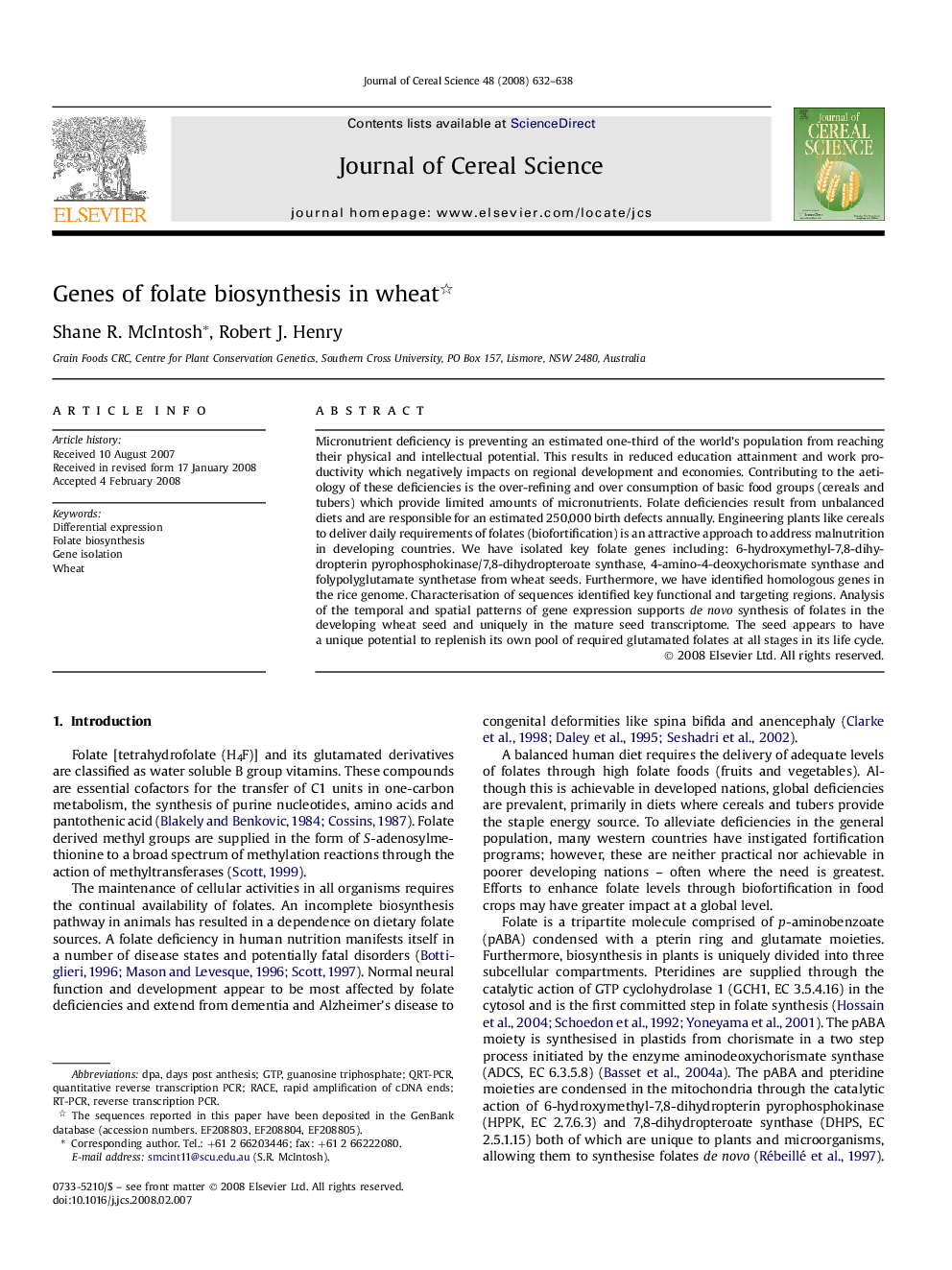| Article ID | Journal | Published Year | Pages | File Type |
|---|---|---|---|---|
| 4516410 | Journal of Cereal Science | 2008 | 7 Pages |
Micronutrient deficiency is preventing an estimated one-third of the world's population from reaching their physical and intellectual potential. This results in reduced education attainment and work productivity which negatively impacts on regional development and economies. Contributing to the aetiology of these deficiencies is the over-refining and over consumption of basic food groups (cereals and tubers) which provide limited amounts of micronutrients. Folate deficiencies result from unbalanced diets and are responsible for an estimated 250,000 birth defects annually. Engineering plants like cereals to deliver daily requirements of folates (biofortification) is an attractive approach to address malnutrition in developing countries. We have isolated key folate genes including: 6-hydroxymethyl-7,8-dihydropterin pyrophosphokinase/7,8-dihydropteroate synthase, 4-amino-4-deoxychorismate synthase and folypolyglutamate synthetase from wheat seeds. Furthermore, we have identified homologous genes in the rice genome. Characterisation of sequences identified key functional and targeting regions. Analysis of the temporal and spatial patterns of gene expression supports de novo synthesis of folates in the developing wheat seed and uniquely in the mature seed transcriptome. The seed appears to have a unique potential to replenish its own pool of required glutamated folates at all stages in its life cycle.
